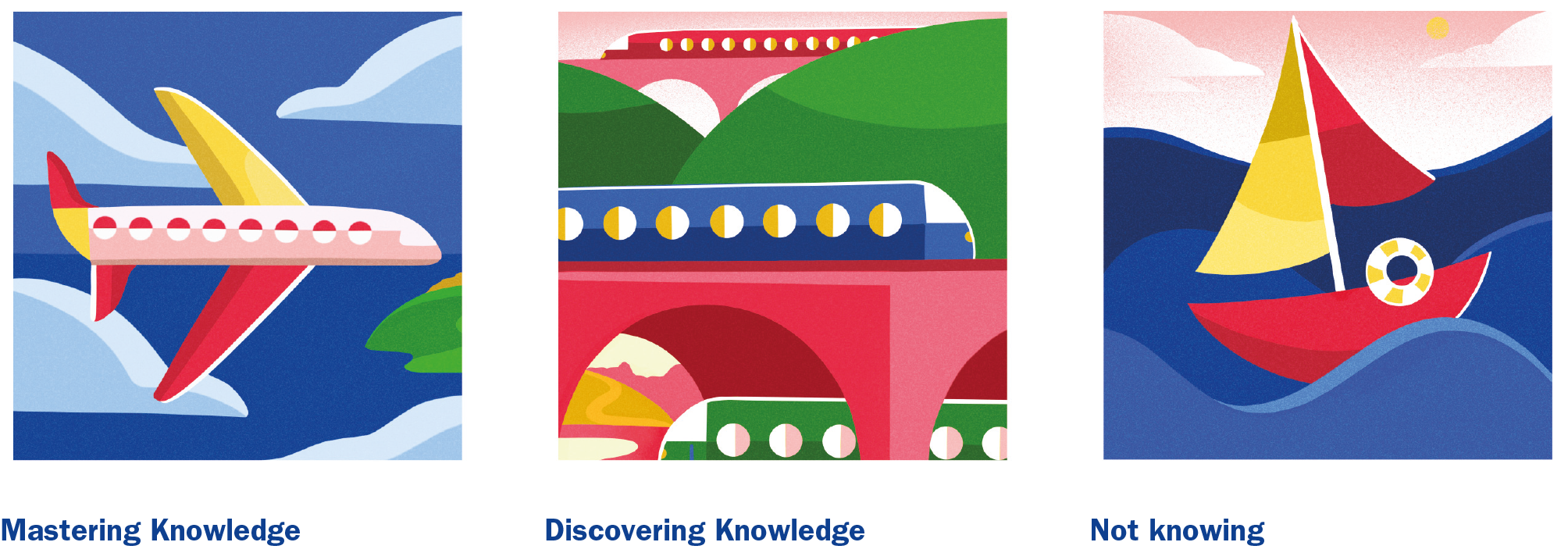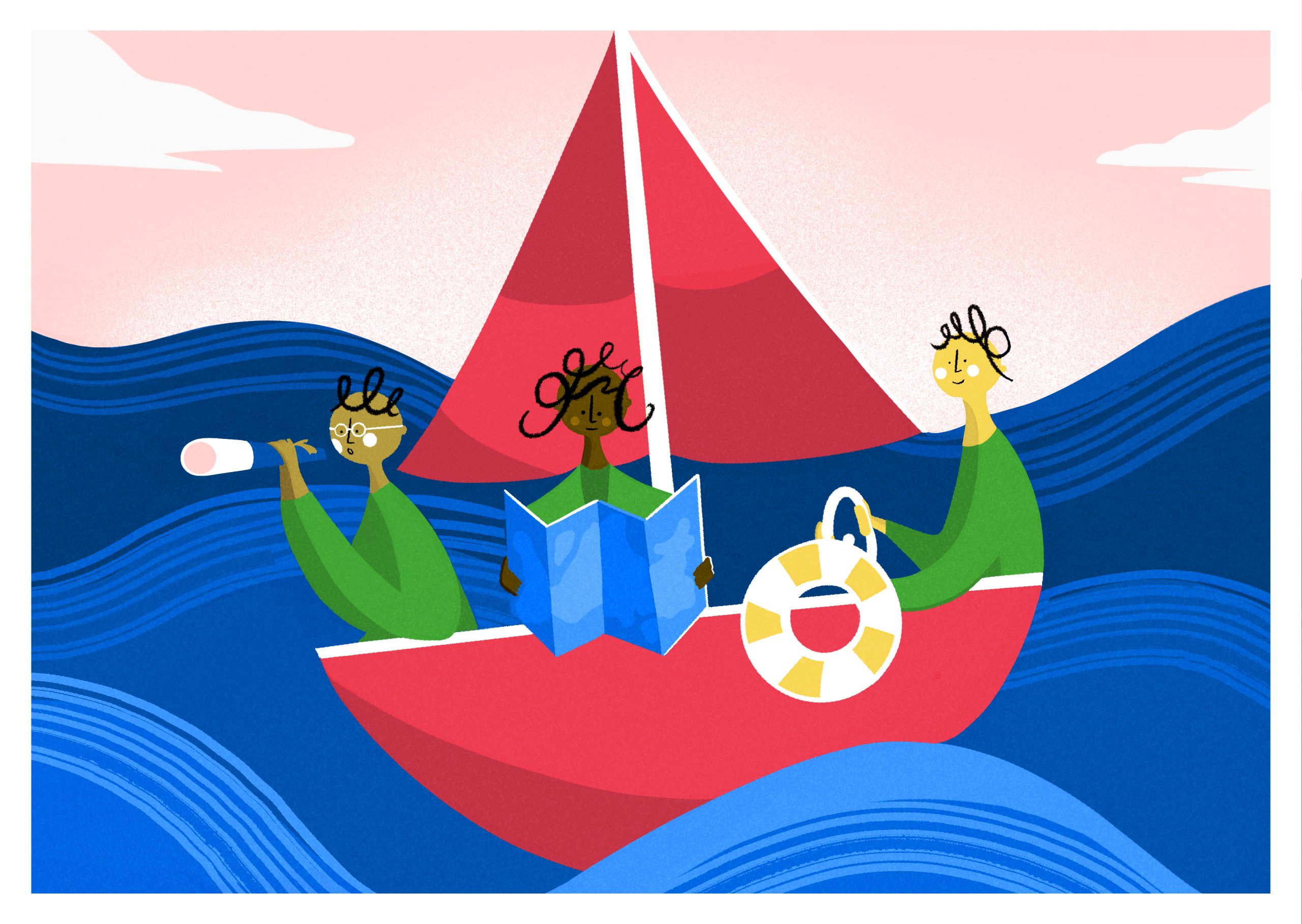3 Creating with uncertainty: education purpose for sustainability

Thinking about the purpose of education is important when considering how we might support students to live now and in the future with ongoing and emerging sustainability challenges. These include severe weather events and infrastructure damage; biodiversity loss; threats to food security; technological change; altered lifestyles; mass migration; polarisation and weakened democracies.
The curriculum is important for ensuring students have the knowledge and skills to respond to change. So too is fostering a capacity to embrace uncertainty as an inevitable and important part of living in the everyday world of family, school and work. Creating with uncertainty fosters transformative possibilities that might be key to mitigating and adapting to sustainability challenges.
To think about how we might shift between transformation and conformity in educational provision, we have developed three heuristics: the plane, the train and the seafaring boat.
The first two relate to ideas of ‘conformity’ in knowing things (i.e. knowledge acquisition of curriculum content, such as the causes of climate change, and behaviours understood as important for addressing these challenges, such a recycling). These rely both on ideas of ‘mastering knowledge’ (the fastest route possible, like taking a plane, with knowledge communicated by teachers) and ‘discovering knowledge’ (following slower and scenic routes, like taking the train, but with the same destination as the plane, and achieved through group discussion, play and inquiry, etc., involving both teachers and students). These are important for ensuring students know and ‘get’ existing disciplinary sustainability knowledge.
A third transformation educational heuristic receives too little attention. This invites students and teachers to think and work differently, with ideas of uncertainty, in addition to conformity. Here students are not simply trying to work out what knowledge is expected of them by their teachers to succeed in homework, tests or exams, for example. Instead, they are enabled to respond to a learning situation by asking questions, sharing their opinions and own areas of knowledge, and querying the way things have always been understood or done. We think of this as being akin to seafaring, heading off without a clear destination. We borrow this metaphor from the anthropologist, Tim Ingold, who distinguishes seafaring from the transported traveller; he describes the seafarer as the one that ‘has no final destination, for wherever he is, and so long as life goes on, there is somewhere further he can go.’
With teacher permission, it is in the moments of seafaring that students can encounter the world, in order to work out who they are and what matters to them; how to be versatile and flexible; to shift their response to the existence of other beings and alternative opinions; and to challenge the idea that there is only one way to look at the world, so that they might respond to its limitless demands. This is where they can work out what sustainability means for their own lives, including any action that they might take.
In any education system functioning within a democracy, students must come to their own position themselves; this cannot be dictated or ‘persuaded’ by teachers. A democratic education requires students to have the space and time to grapple intellectually and emotionally with difficult questions and challenges, to see where it is that they might land, always acknowledging that others might see things differently.
We have used the above images with students aged nine and ten to signal to them the shifts being made between the different heuristics. When in the boat, we have invited them to be ‘researchers’ alongside us, to think through what it is that we all do not know.
In the film Uncertainty in education Dr Perpetua Kirby and Dr Rebecca Webb talk about why this approach matters for education. [https://www.youtube.com/watch?v=enJ5E76Jnw8&t=3s]


